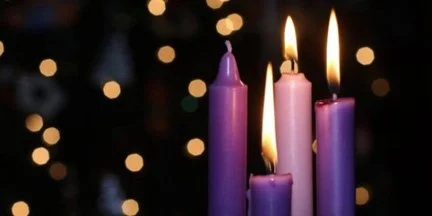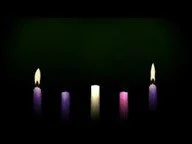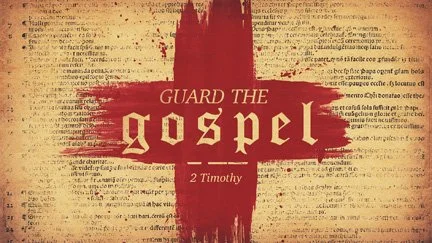Psalm 103:1-18
Ever since Queen Elizabeth passed away on Thursday, we have been remembering her 70-year reign along with the rest of the world. The people of Great Britain are mourning the loss of this remarkable woman, who began her leadership and service as a young woman during World War II, ascended to the throne through incredible circumstances, and led her country through the Cold War, years of peace and prosperity, and years of troubles and turmoil. With Prince Philip by her side for 73 years, she demonstrated strength in the midst of crisis and almost always seemed to do exactly the right thing. We saw her sense of humor most recently displayed in her “tea party” with Paddington Bear during the Jubilee. And we know that she will be missed especially by her family members.
Remembering is important. Remembering people, remembering events, remembering personal growth and triumph, as well as personal faults and failures. We remember significant moments in our lives and in the lives of others. We think back on relationships and how they shaped our existence. We commemorate special occasions, like anniversaries and births. We set aside days as holy days and holidays in order to remember their importance and meaning. And we remember, at least partly, so that we can learn from the past and try to create a better future.
The call to remember comes often in the Bible. There are many occasions on which the people of Israel are admonished to “remember that you were slaves in Egypt and that the Lord God brought you out of there …” (Deuteronomy 5:15). When the time came for them to be set free from the Egyptians, and God’s last plague came on the land, the death of the firstborn, God spared the Hebrews from this fate by having them mark their doors with lamb’s blood, so that he passed over their houses. The Passover was something that they were told to remember always. God told the people, “This is a day you are to commemorate; for the generations to come you shall celebrate it as a festival to the Lord – a lasting ordinance … Celebrate the Feast of Unleavened Bread, because it was on this very day that I brought [you] out of Egypt … When you enter the land that the Lord will give you as he promised, observe this ceremony. And when your children ask you, ‘What does this ceremony mean to you?’ then tell them, ‘It is the Passover sacrifice to the Lord, who passed over the houses of the Israelites in Egypt and spared our homes when he struck down the Egyptians.’”
One of the central Christian observances is based on remembering: it is the sacrament of Communion, when we are to remember the Passover meal that Jesus shared with his disciples on the night before he was put to death. During that meal, Jesus instructed them to remember him when they shared the bread and cup again. “The Lord Jesus, on the night he was betrayed, took bread, and when he had given thanks, he broke it and said, ‘This is my body, which is [given] for you; do this in remembrance of me.’ In the same way, after supper he took the cup, saying, ‘This cup is the new covenant in my blood; do this, whenever you drink it, in remembrance of me.’”
Remembering is at the core of who we are as the children of God and followers of Jesus Christ. Remembering helps remind us of who we are, and of whose we are. It helps us to be aware of all that God has done for us. Memories anchor us to our history and our heritage, and in sharing the importance of our faith with our children and grandchildren, we are giving them what they will remember in developing a faith of their own. Most of us are part of a church because our parents or grandparents brought us to church as children. Many of my earliest memories are of events or experiences that took place in church, and they are good memories. And those good memories have only increased in number and significance over the course of my life.
Today, we are invited to remember the events of September 11, 2001. The things I saw and heard and felt on that day – and the days following – are things that I could never forget. The planes flying into the buildings. The people leaping to their deaths from the top of the towers. The Twin Towers crumbling to the ground in a matter of seconds, killing thousands of people, including many first responders who ran into the buildings when everyone else was running out. The sight of the plane crash in Pennsylvania. The Pentagon with a hole torn in its side. The face of the President when he was given the news of what had happened. The days of searching through the rubble for survivors, or for bodies. The papers posted on fences near Ground Zero with the faces of the missing, families hoping desperately to find their loved ones alive.
When we remember, we honor those who gave their lives to save others on that beautiful autumn day. We give respect to those innocent people who died because they happened to work in certain locations in the Towers or Pentagon, or who happened to board a particular plane on a particular day. We acknowledge that there are people – perhaps many people – around the world who hate America enough to plot such a horrible attack. We are grateful for the outpouring of support that came from so many nations and leaders around the globe. And we are prodded to continue to discern ways to prevent such a tragedy from ever happening again.
I will never forget where I was or what I was doing when I heard about the attacks. I immediately turned on my TV, and it hardly got turned off for the better part of a week. I watched in horror and shock, unable to turn away from the images on the screen. And then I watched with diminishing hope that anyone would be found in the ashes and dust that used to be skyscrapers filled with offices and workers.
My congregation quickly decided to open the church for a prayer service on the evening of September 11th. I was serving a small parish in a small town in South Carolina. And yet, even there I found that one of my members had a connection who worked in one of the Twin Towers. The events of that day touched every American in some way. And our memories of it continue to shape who we are and how we connect with the world.
I hope that in remembering, we don’t get stuck in the grief, anger, or desire for revenge that consumed some of us for so long. Instead, I hope that our remembering will be a way of choosing to remember instead the way that our country seemed to come together as one in the days following the attack. For at least a little while, partisan politics took a backseat to honest patriotism and a national time for mourning. In some ways, we expressed our best selves for some time after 9/11. I hope and pray that, in these troubled times we live in now, we will find some way to once again live our best lives together, with partisan politics taking a back seat to creative cooperation in solving the big problems that face our nation.










